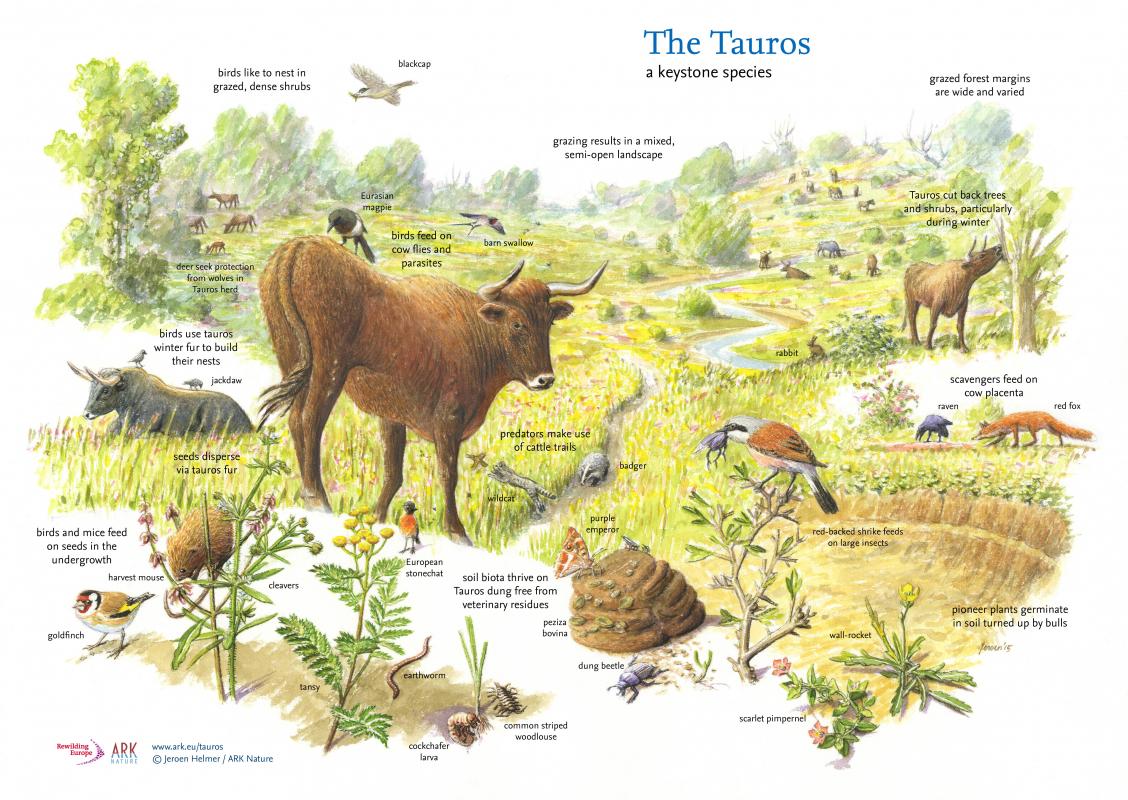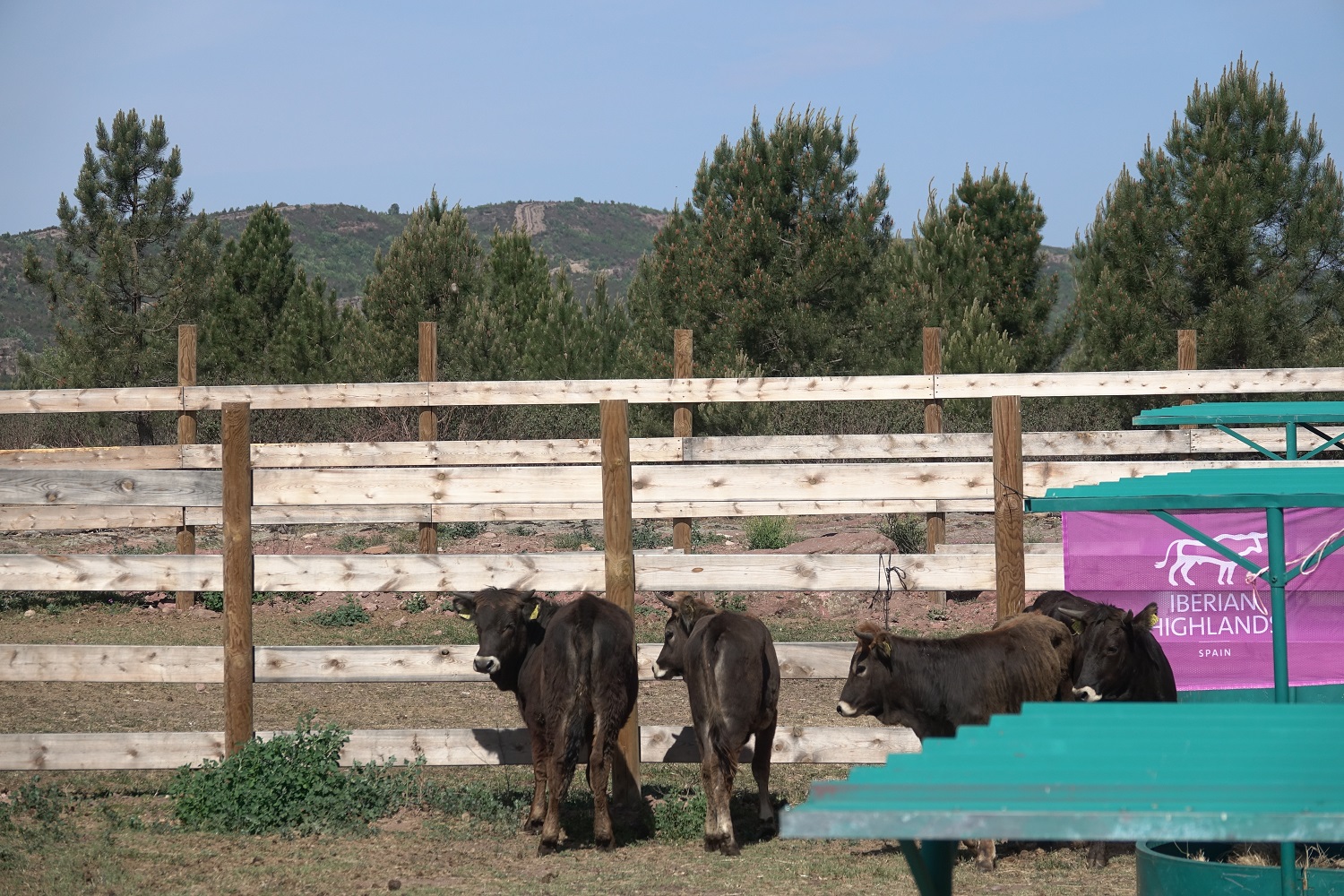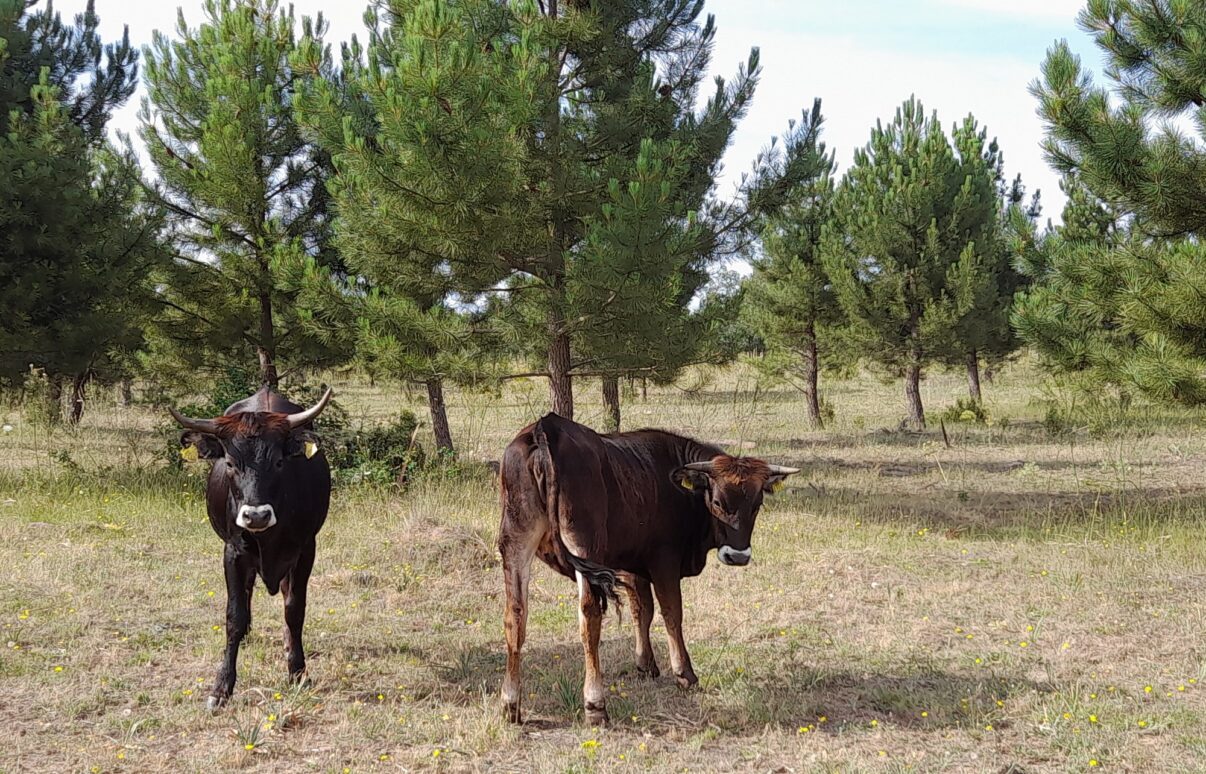Natural grazing in the Dehesa de Solanillos woodland is no longer just for horses. A herd of ten tauros has just been released in this area of the Upper Tagus (Alto Tajo), located in the village of Mazarete (Guadalajara province), which was devastated by a major wildfire in 2005. Here, these large herbivores will fulfil an important ecological function, contributing to the regeneration of the forest and increasing biodiversity.

The tauro is a type of cattle that resembles the aurochs, the wild cows that were the ancestors of every present day domestic cattle breeds and was a keystone species for European biodiversity over thousands of years. Although the aurochs became extinct in the 17th century, their genes are present in several domestic cattle breeds. By combining this genetic material, the Taurus Foundation created the taurus, which looks and behaves like its wild ancestors.
The tauros’ trampling helps the forest to grow more open, allowing other species of plants and animals that need more light or an open place to thrive. This will create a mixed forest with alternating areas of different plant density and higher biodiversity. In addition, by eating small shrubs and woody material, they will also help to reduce the risk of wildfires. As well, their droppings will attract many insects and are useful for plants.

“This is a particularly favourable time for these large herbivores to be present and contribute to this landscape rewilding, because the forest is in a stage of natural regeneration in which dominant scrub species are resprouting and the tauros will help prevent them from spreading too much”, explains Marina Mònico, Rewilding Spain’s Rewilding Officer.
The tauros are used to living in the wild, they do not need shelter or supplementary feeding, so they are easier and cheaper to manage. Being a very rustic breed, they are also adapted to the harsh weather conditions found in this landscape.
On arrival at Mazarete, the ten tauros – eight females and two males – spent three weeks in an enclosure adapting to their new habitat, during which the Rewilding Spain team monitored the animals’ health and fitted GPS transmitters in two of them. Previously, the team received specific training from Taurus Foundation on the behaviour these animals behaviour.

Once this adaptation period is over, the tauros are now moving around an area of 1,485 hectares where a herd of Serrano horses has also been living for more than a year and a half.
Rewilding Spain plans for both herds to grow to around one hundred animals between the two species within three years. “This goal is aligned with the capacity of this landscape and a hundred would be a sufficient number to generate the positive ecological impact that we are aiming for,” states Pablo Schapira, Rewilding Spain’s Team Leader
Benefits for people: employment and nature-based tourism
In addition to their ecological function, the presence of the tauros and the Serrano horses will also provide benefits to the local communities. Two new jobs have already been created and two young professional living in the surrounding villages of Alcolea del Pinar and Mazarete have been hired.

It is also planned to design signposted trails for self-visiting, as well as guided tours, to promote nature observation tourism and environmental education. In this way, many more people will be able to get to know and appreciate the relevant role that these animals play in nature restoration.
The herd that now lives in the Upper Tagus area is the second group of tauros to arrive in the Iberian Highlands as part of the rewilding initiative that Rewilding Spain is developing. The first herd thrives in Frías de Albarracín (Teruel province), where Rewilding Spain is partnering with La Maleza Wildlife Park local business in this action management.
These actions are part of the Iberian Highlands rewilding initiative and are carried out in collaboration with Rewilding Europe and the financial support from the Endangered Landscapes Programme, managed by the Cambridge Conservation Initiative in partnership with Arcadia, and Cartier for Nature.
